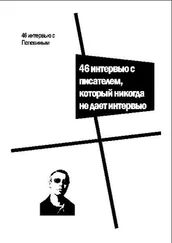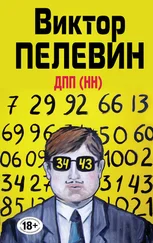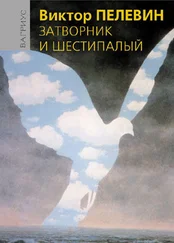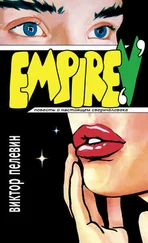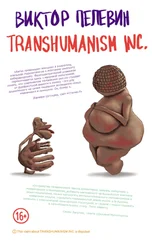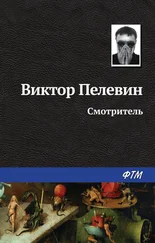Виктор Пелевин - Babylon
Здесь есть возможность читать онлайн «Виктор Пелевин - Babylon» весь текст электронной книги совершенно бесплатно (целиком полную версию без сокращений). В некоторых случаях можно слушать аудио, скачать через торрент в формате fb2 и присутствует краткое содержание. Жанр: Современная проза, на английском языке. Описание произведения, (предисловие) а так же отзывы посетителей доступны на портале библиотеки ЛибКат.
- Название:Babylon
- Автор:
- Жанр:
- Год:неизвестен
- ISBN:нет данных
- Рейтинг книги:5 / 5. Голосов: 1
-
Избранное:Добавить в избранное
- Отзывы:
-
Ваша оценка:
- 100
- 1
- 2
- 3
- 4
- 5
Babylon: краткое содержание, описание и аннотация
Предлагаем к чтению аннотацию, описание, краткое содержание или предисловие (зависит от того, что написал сам автор книги «Babylon»). Если вы не нашли необходимую информацию о книге — напишите в комментариях, мы постараемся отыскать её.
Babylon — читать онлайн бесплатно полную книгу (весь текст) целиком
Ниже представлен текст книги, разбитый по страницам. Система сохранения места последней прочитанной страницы, позволяет с удобством читать онлайн бесплатно книгу «Babylon», без необходимости каждый раз заново искать на чём Вы остановились. Поставьте закладку, и сможете в любой момент перейти на страницу, на которой закончили чтение.
Интервал:
Закладка:
It was a large inscription - significantly larger than all the rest, stretching right across the gates - written in fluorescent orange paint (it gleamed brightly in the rays of the electric lamp): THIS GAME HAS NO NAME.
The moment Tatarsky read it, all the other ethnographic material ceased to register in his awareness; his consciousness held nothing but these glittering words. He seemed to understand their meaning at a very deep level, and although he could hardly have explained it to anyone else, that meaning undoubtedly required him to climb over the gates. It proved not to be difficult.
Behind the gates was an abandoned building site, a wide area of waste ground with only sparse indications of any human presence. At the centre of the site stood an unfinished building - either the foundations of some intergalactic radio telescope or a strangely designed multi-storey parking lot: the construction work had been broken off at a stage when only the load-bearing structures and walls were in place. The structure looked like a stepped cylinder made up of several concrete boxes standing one on top of another. Round them wound a spiral roadway on reinforced concrete supports, which ended at the top box, surmounted by a small cubic tower with a red signal lamp.
Tatarsky thought it must be one of those military construction projects begun in the seventies that had failed to save the empire, but had shaped the aesthetic of ‘Star Wars’. He recalled Darth Vader and his asthmatic wheezing and marvelled at what a wonderful metaphor he was for the career communist: probably somewhere on his starship he had a dialysis machine and two teams of cardiologists, and Tatarsky recalled vaguely that there had been hints at something of the kind in the film. But in his present state thinking about Darth Vader was dangerous.
The unfinished building was illuminated by three or four floodlights that plucked patches of it out of the gloom - sections of the concrete wall, the spiral road and the upper tower with its winking signal light. If not for that red beacon, the building’s incompleteness could have been taken in the darkness for the dilapidation of age, and it might have been a thousand or even a full ten thousand years old. But then, thought Tatarsky, the beacon could be powered by some unimaginable ancient electricity transmitted under the ground from Egypt or Babylon.
Recent traces of man were only visible by the gates, where he was standing. There was something like the branch office of a military unit here - several living trailers, a boom, a board with a fire bucket and a crowbar, and a stand with a poster showing identical soldiers with a strange self-absorption imprinted on their faces demonstrating various training formations. Tatarsky was not in the least bit surprised when he saw an immense mushroom with a tin-sheet cap and a telephone hanging on its stalk-post - he realised it must be the sentry post. At first he was sure there was no sentry on duty, but then he saw that the mushroom’s conical cap was painted red and decorated with symmetrical white spots.
‘Nothing’s quite as simple as it seems,’ he whispered.
That very moment a quiet, mocking voice spoke somewhere close beside him: ‘This game has no name. It will never be the same.’
Tatarsky swung round. There was no one anywhere near him, and he realised it was an auditory hallucination. He felt a bit scared, but despite everything, what was taking place held a strangely delightful promise.
‘Onwards,’ he whispered, leaning forward and slipping quickly through the murk towards the road that led to the ziggurat. ‘After all,’ he thought, ‘it’s just a multi-storey carpark.’
‘With hanging gardens,’ the voice in his head added quietly.
The fact that the voice spoke in Russian convinced Tatarsky it was a hallucination, but it reminded him once again of the confusion of tongues. As though in response to his thought the voice pronounced a long phrase in a strange language with a large number of sibilants. Tatarsky decided to ignore it, especially since he had already set foot on the spiral ascent.
From the distance he had failed to appreciate the true dimensions of the building. The road was wide enough for two trucks to pass each other (‘Or chariots,’ the voice added gleefully, ‘chariots with four-in-hand! Now those were chariots!’).
It was constructed of concrete slabs, with the joints between them left unsealed. Tall plants protruded from the joints - Tatarsky didn’t know what they were called, but he had known since he was a child that he could use their tough stems in his shoes instead of shoe laces. From time to time wide gaps appeared in the wall to his right, leading into the body of the ziggurat. Inside there were wide open spaces littered with building waste. The road constantly disappeared round the comer ahead, seeming to break off in mid-air, and Tatarsky walked carefully, clinging to the wall with one hand. On one side the tower was illuminated by the floodlights from the building site, and on the other by the moon, suspended in a gap in a high cloud. He could hear an open door banging in the wind somewhere up above, and the same wind brought the distant sound of dogs barking. Tatarsky slackened his pace until he was walking really slowly.
Something crunched under his foot. It was an empty cigarette pack. When he picked it up and moved into a patch of light, he saw it was a pack of Parliament Menthol. But there was something else much more surprising about it: on the front of the pack there was an advertising hologram showing three palm trees.
‘It all fits,’ he whispered and carried on, keeping a careful eye on the ground beneath his feet.
The next discovery was waiting one tier higher - he spotted the coin gleaming in the moonlight from a distance. He’d never seen one like it before: a Republic of Cuba three-peso piece with a portrait of Che Guevara. Tatarsky was not at all surprised that a Cuban coin should be lying on a military construction site - he remembered the final sequence of the film Golden Eye, with that immense Soviet-made antenna rising up out of the water somewhere on the Isle of Freedom. This was obviously the payment received for its construction. He replaced the coin in the empty Parliament pack and put it in his pocket, completely confident that there was something else waiting for him.
He wasn’t mistaken. The road was approaching its end at the very top box, in front of which lay a heap of building waste and broken crates. Tatarsky noticed a strange little cube lying in among the waste and picked it up. It was a pencil sharpener in the shape of a television, and someone had drawn a large eye on its plastic screen with a ballpoint pen. The sharpener was old - they used to make them like that in the seventies -and it was remarkable that it was so well preserved.
Cleaning off the mud clinging to the sharpener, Tatarsky slipped it into his inside pocket and looked round, wondering what to do next. He was afraid to go into the box: it was dark in there and he could easily break his neck if he fell into some hole or other. Somewhere up above, a door banged once again in the wind, and Tatarsky remembered there was a small tower on the summit of the building, with a red beacon lamp. He couldn’t see the tower from where he was standing, but there was a short fire-ladder leading upwards.
The small tower turned out to be the housing where the lift motors should have been. The door was open. On the wall right inside the door there was a light-switch. When Tatarsky turned on the light he saw the lingering traces of a soldier’s harsh life: a wooden table, two stools and and empty beer bottles in the corner. It was obvious that these were the traces of a soldier’s life, and not any other, from the magazine photographs of women stuck to the walls. Tatarsky studied them for a while. He thought that one of them, running across the sand of a tropical beach entirely naked and with a golden suntan, looked very beautiful. It wasn’t even so much her face and figure, but the incredible, indefinable freedom of her movement, which the photographer had managed to capture. The sand, the sea and the leaves of the palm trees on the photograph were all so vivid that Tatarsky heaved a heavy sigh - the meagre Moscow summer was already over. He closed his eyes and for a few seconds he fancied he could hear the distant murmur of the sea.
Читать дальшеИнтервал:
Закладка:
Похожие книги на «Babylon»
Представляем Вашему вниманию похожие книги на «Babylon» списком для выбора. Мы отобрали схожую по названию и смыслу литературу в надежде предоставить читателям больше вариантов отыскать новые, интересные, ещё непрочитанные произведения.
Обсуждение, отзывы о книге «Babylon» и просто собственные мнения читателей. Оставьте ваши комментарии, напишите, что Вы думаете о произведении, его смысле или главных героях. Укажите что конкретно понравилось, а что нет, и почему Вы так считаете.

